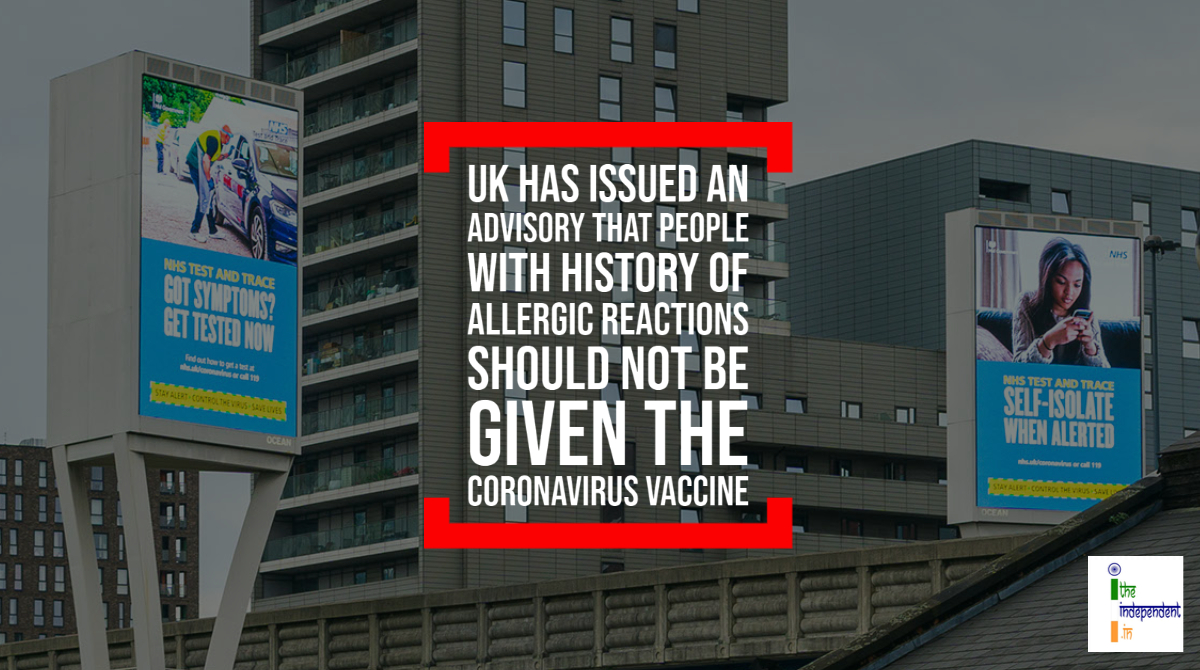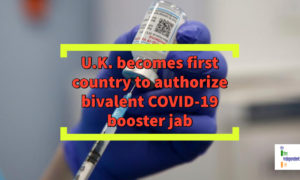
Medicines and Healthcare products Regulatory Agency (MHRA) has issued an advisory that people with significant history of allergic reactions should not be given the Pfizer-BioNTech’s Coronavirus (COVID-19) vaccine.
MHRA, an executive agency of the Department of Health and Social Care in the United Kingdom (U.K.), had earlier approved the roll-out of the vaccine. The first dose of the vaccine was given to Britons on Tuesday, i.e., December 8, 2020.
The precautionary advice comes after 2 healthcare workers received the first shot of the vaccine on Tuesday and were carrying adrenaline autoinjector, responded adversely. Both had a history of allergic reactions. After receiving the vaccine, they developed symptoms of anaphylactoid reaction. MHRA is investigating the reports on top priority.
Anaphylactoid reactions are defined as those reactions that produce the same clinical picture with anaphylaxis but are not IgE mediated. Anaphylaxis causes immune system to release a flood of chemicals that can cause a person to go into shock. The blood pressure drops suddenly and the airways become narrow, blocking breathing. Signs and symptoms include a rapid, weak pulse, skin rash and nausea.
The Chief Executive Officer (CEO) of MHRA – June Raine said, “Any person with a history of anaphylaxis to a vaccine, medicine or food should not receive the Pfizer BioNTech vaccine.”
He further said, “A second dose should not be given to anyone who has experienced anaphylaxis following administration of the first dose of this vaccine.”
Pfizer has said people with a history of severe adverse allergic reactions to vaccines or the candidate’s ingredients were excluded from their late-stage trials, which is reflected in the MHRA’s emergency approval protocol.
A statement from Pfizer-BioNtech read, “As a precautionary measure, the MHRA has issued temporary guidance to the NHS while it conducts an investigation in order to fully understand each case and its causes. Pfizer and BioNTech are supporting the MHRA in the investigation.”
National Health Service (NHS), who has been given the task of rolling-out the vaccine, will be giving shots to upto 4 million people by December end 2020.
Speaking on the occasion, the National Director for NHS England – Stephen Powis said, “As is common with new vaccines the MHRA [Medicines and Healthcare products Regulatory Agency] have advised on a precautionary basis that people with a significant history of allergic reactions do not receive this vaccination after two people with a history of significant allergic reactions responded adversely yesterday.”
The advice from MHRA also says that vaccines should only be carried out in facilities where resuscitation measures are available. MHRA has also informed Pfizer about 2 yellow card reports that may be associated with allergic reaction due to administration of the vaccine.







